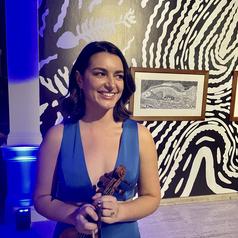
Laura Case
PhD Candidate, Sydney Conservatorium of Music, University of Sydney
Laura Case is a PhD Candidate and lecturer in musicology at the Sydney Conservatorium of Music. She is a descendant of the Wiradjuri people of Central West New South Wales and a classical violinist with over 20 years of experience.
Less ![]()
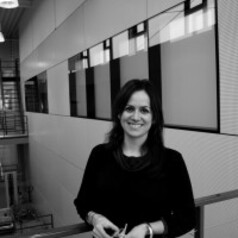
Laura Cinti
Research Fellow in bio art & plant behaviour, University of Southampton
Laura Cinti is a research based artist working with biology. Her current practice utilises drone technology and artificial intelligence to explore their impacts in environmental conservation and biodiversity. Laura has a PhD from UCL's Slade School of Fine Art, MA in Interactive Media: Critical Theory & Practice from Goldsmiths College, University of London and BA (Hons) in Fine Art from the University of Hertfordshire. Her artworks have been exhibited and presented worldwide.
Less ![]()

Laura D'Olimpio
Dr Laura D’Olimpio is a Senior Lecturer in Philosophy at The University of Notre Dame Australia. Laura completed her PhD 'The Moral Possibilities of Mass Art' at The University of Western Australia. Her Thesis examines the moral impact of mass artworks, particularly film, in society. Laura has published in the areas of philosophical pedagogy, aesthetics and ethics and regularly contributes to Radio National's The Philosopher's Zone. Laura is Chairperson of the Association for Philosophy in Schools (APIS, W.A.) and co-editor of the open access Journal of Philosophy in Schools (http://www.ojs.unisa.edu.au/index.php/jps/).
Less ![]()
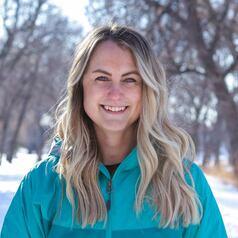
Laura Dalman
PhD candidate, University of Tasmania
Laura Dalman is a PhD candidate at the Institute for Marine and Antarctic Studies focusing on Southern Ocean ice-associated primary producers. She is interested in how physical and biological processes influence the magnitude, composition, and phenology of marine primary production and nutrient dynamics.
Less ![]()


Laura Diamond
Associate Professor in Musculoskeletal & Orthopaedic Biomechanics, Griffith University
Dr Laura Diamond is an NHMRC Emerging Leadership Fellow, Associate Professor, and Research Lead at Griffith Centre of Biomedical and Rehabilitation Engineering, Griffith University. She is a trained biomedical engineer (Dalhousie U, Canada) with a PhD in biomechanics (U of Melbourne) leading a research program focused on development and application of novel technologies to understand and treat the biomechanical mechanisms of musculoskeletal and orthopaedic conditions. Laura has attracted >AU$14M in grant funding, invented 1 National Phase patent, and published >80 scientific papers/book chapters. She is founding Deputy Director of the Australian Centre for Precision Health and Technology (PRECISE), has an extensive community engagement portfolio, and is an advocate for participation of schoolgirls/women in STEM.
Less ![]()
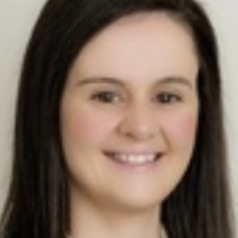
Laura Downie
Associate Professor in Optometry and Vision Sciences, The University of Melbourne
Laura Downie is an Associate Professor and Dame Kate Campbell Fellow for research excellence in the Department of Optometry and Vision Sciences, in the Faculty of Medicine, Dentistry and Health Sciences, at the University of Melbourne. She is an academic clinician scientist and practising optometrist, whose achievements span research, education, engagement and leadership. She heads the ‘Anterior Eye, Clinical Trials and Research Translation Unit’, comprising 14 staff and research higher degree students.
She is Director of the inaugural Melbourne Cochrane Centre for Evidence-Based Vision Care, one of nine such centres globally recognised for excellence in leading the translation of high-quality research evidence into eye care practice. Laura’s research has a strong translational focus, combining laboratory, clinical and implementation science as a foundation for improving outcomes for patients with eye disease. In 2018, she was recognised by Optometry Australia as the youngest of 32 “female luminaries” to have pioneered optometric research, and has received multiple national and international awards for research excellence.
Less ![]()

Laura Empson
Professor in the Management of Professional Service Firms, Bayes Business School, City, University of London
Professional Service Firms at Bayes Business School (formerly Cass), as well as Senior Research Fellow at Harvard Law School.
She has dedicated almost 30 years to researching professionals, professionals, and the professions. Her research focuses on issues of leadership, governance, culture, identity, and complex change processes, all in a professional context.
Alongside her publications in leading academic journals, she has published a series of books with Oxford University Press – her latest is Leading Professionals: Power, Politics, and Prima Donnas.
She published regularly in Harvard Business Review, has made a documentary for the BBC, and co-presents the podcast series, Leading Professional People.
She advises many of the world’s leading law, accounting, and consulting firms. From 2013 to 2016 she served on the Board of KPMG LLP (becoming Chair of the Independent Non-Executives).
She was previously Associate Professor at the University of Oxford. She has a PhD and MBA from London Business School.
Less ![]()
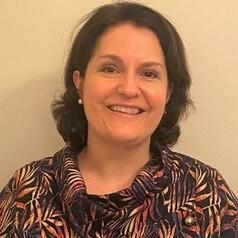
Laura Fenton
Research Associate, Public Health, University of Sheffield
Dr Fenton is a Research Associate in Public Health at the University of Sheffield and in Geography at the University of Manchester. She has a PhD in Sociology from the University of Manchester. Her PhD used biographical and life history methods to explore different generations of British women's relationships to alcohol across the lifecourse. Since finishing her PhD, she has worked on projects on youth, generation and the life-course, including the ESRC funded Girlhood and Later Life project and the UKRI funded Austerity and Altered Life-Courses project at the University of Manchester, and the Wellcome funded Youth Drinking in Decline project at the University of Sheffield. She is especially interested in how young people’s transitions into adulthood act as a litmus test for the state of societies – the nature and extent of (in)equality, social (in)justice, the quality of life they offer - and how this changes over time.
Less ![]()

Laura Fisher
PhD student, Sociology, Dalhousie University
Ph.D. student (Dalhousie University)
Master of Arts in Sociology '21 (Acadia University)
Bachelor of Community Development (with Honours) (Acadia University)
Social Sciences and Humanities Research Council masters and doctoral fellowship holder
Research Assistant in Reimagining Care/Work Policies in Canada project
previous research assistant in infant feeding and food insecurity to Dr. Lesley Frank.
Less ![]()

Laura Fleszar
Public Health Researcher at the Institute for Health Metrics and Evaluation, University of Washington
Laura Fleszar, MPH, is a Researcher at the Institute for Health Metrics and Evaluation (IHME) at the University of Washington. Laura has experience managing inpatient and outpatient clinical trials for cardiovascular disease and has worked extensively in the health and education nonprofit space. In her current role, she works with the cardiovascular disease team on health disparities projects. Her research interests include health policy, social determinants of health, and statistical modeling.
Laura received her MPH in Epidemiologic and Biostatistical Methods from Johns Hopkins University Bloomberg School of Public Health. She received her BA in Psychology from the University of Pennsylvania.
Less ![]()
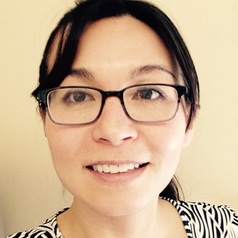
Laura Gee
Assistant Professor of Economics, Tufts University
Laura K. Gee received her PhD in Economics from UC San Diego in 2013. Her research is in behavioral economics — with a particular focus on how individual decision making is influenced by group dynamics. She currently has two main lines of research. One line is about the provision of public goods including charitable contributions. The second is about the relationship between social networks and labor markets. Her studies rely on both lab and field experiments, as well as observational data.
Less ![]()

Laura Goh
Postdoctoral Research Associate, School of Architecture, Design and Planning, University of Sydney
Laura is a Postdoctoral Research Associate at the Sydney School of Architecture, Design and Planning at the University of Sydney.
Less ![]()

Laura Goldblatt
Assistant Professor of English, University of Virginia
Laura Goldblatt is a literary and cultural studies scholar of state propaganda and material culture in the twentieth-century United States. Additionally, she has written about the university as a critical site of activist intervention and the impact of its built environment and labor practices on local housing markets and economic precarity. Her peer-reviewed work has appeared in or is forthcoming in Mississippi Quarterly, the Journal of American Studies, Social Text, Winterthur Portfolio, Pedagogy, Works and Days, and an edited volume about the August 12th, 2017 violence in Charlottesville. She is currently at work on two monographs. The first, After Destiny: Propaganda, Settler Colonialism, and Community, explores the reception of state-sponsored reproductions of literary and popular texts about U.S. national expansion that were used for propagandistic purposes. Yet rather than focusing on the formal features of the artifacts themselves, she examines their use value for groups dispossessed by the logic of late capitalism, such as Native and Black Americans, during the long twentieth century. Additionally, along with Professor of Anthropology Richard Handler, she is writing a monography about twentieth-century U.S. postage stamps that takes moral circulation as its theme.
Less ![]()
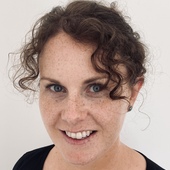
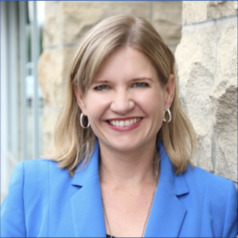
Laura Hambley
Adjunct Assistant Professor, Department of Psychology, University of Calgary
Dr. Laura Hambley is an Organizational Psychologist, Keynote Speaker, Business Leader, Author and Podcast Host. She is a sought-after thought leader on workplace psychology and career development in Canada, with 22+ years of experience providing organizational consulting and developing leaders in Canada and internationally. Dr. Laura is a thought leader on the evolution of work and understands the intersection of business and people.
Dr. Laura’s areas of expertise include leadership, team, and culture development in organizations, remote/hybrid workplace success, and mental health/developing resiliency through turbulent times. She holds a Ph.D. in Industrial/Organizational Psychology from the University of Calgary, where she is currently an Adjunct Professor. Her research on remote leadership and team effectiveness was recognized for a decade before the pandemic, and has helped countless organizations adapt to hybrid workplaces.
As a passionate entrepreneur, Dr. Laura has founded several psychology practices in Canada since 2009, including Work EvOHlution™, Canada Career Counselling, Calgary Career Counselling, and Synthesis Psychology. She runs the podcast Where Work Meets LifeTM, where she interviews global experts on a variety of topics around wellness, career, and culture.
Less ![]()
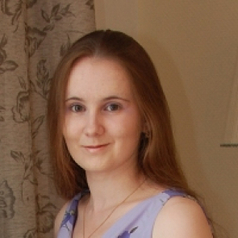
Laura Hamer
Senior Lecturer in Music, The Open University
Laura Hamer is a Staff Tutor and Senior Lecturer in Music. She is currently Director of Student Support for the School of Arts and Humanities.
Laura is a Feminist Musicologist specialising in Women in Music. She holds a BA in Music from the University of Oxford and an MA and PhD in Musicology from Cardiff University. She completed a PG Cert in Academic Practice (HE teaching qualification) at Liverpool Hope University in 2013, and is a Senior Fellow of the Higher Education Academy. She is also a pianist, and holds an LRSM in Advanced Piano Performance.
Laura initially worked for The Open University as an Associate Lecturer between 2010 and 2011. She was also a Lecturer in Music at The Open University in 2011. Between 2012 and 2018 she worked for Liverpool Hope University, including four years as Head of Music. She has also taught Music at Cardiff University, Rose Bruford College, and Royal Birmingham Conservatoire of Music. She served on the Central Committee of the National Association for Music in Higher Education (NAMHE, now MusicHe) between January 2014 and December 2016. She was Lead for the EDIMS (Equality, Diversity and Inclusion in Music Studies) Network Parents and Carers Working Group between 2020 and 2022.
As a Staff Tutor, Laura oversees tuition and supports students and Associate Lecturers on a range of Music modules throughout the UK (currently A342).
Research interests
Laura’s primary research interests lie in women in music, encompassing both classical and popular traditions. Her monograph Female Composers, Conductors, Performers: Musiciennes of Interwar France, 1919-1939, was published by Routledge in 2018 (paperback edition, 2020). She has also published articles and book chapters on a wide range of women musicians, including composers, songwriters, conductors, and all-woman orchestras, and also on Olivier Messiaen, Gerard Manley Hopkins, reception and criticism studies, and digital musicology. She is editor of The Cambridge Companion to Women in Music since 1900 (Cambridge University Press, 2021), and co-editor, with Helen Julia Minors, of The Routledge Companion to Women and Musical Leadership: The Nineteenth Century and Beyond (forthcoming, Routledge). Please see the Publications tab for a full list of publications.
Laura has organised a number of conferences and events. In 2013 she organised the Eighth Biennial International Conference on Music since 1900. In 2015 she organised the Women in Music since 1913 Symposium, and the same year she co-chaired Hopkins at Hope (a celebration of the time spent in Liverpool by the poet, musician, and priest Gerard Manley Hopkins) with Dr Guy Cuthbertson (Liverpool Hope University). In 2019, she co-chaired the International Women and/in Musical Leadership Conference with Prof Helen Julia Minors (York St John University). She is currently PI on the AHRC-funded Women's Musical Leadership Online Network: Women’s Musical Leadership Online Project (WMLOP) | Faculty of Arts and Social Sciences (open.ac.uk).
Less ![]()

Laura Harris
Research Assistant, Sport, Allyship, and Inclusion Lab, Brock University
Laura is a research assistant and sessional instructor at Brock University. Her research focuses on gender equity in sport, with a focus on the marketing portrayal and sponsorship of professional women athletes.
Less ![]()
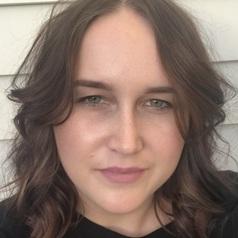
Laura Johnstone
PhD Candidate in Criminal Justice, University of Canterbury
I hold a Bachelor of Arts, a Bachelor of Laws and a Master of Criminal Justice (Distinction) (University of Canterbury) and my interests lie in prisons, punishment of criminal offending, and criminal justice systems. Prior to returning to academia to undertake my graduate studies, I practiced law and worked across various state agencies in Aotearoa New Zealand as a public servant.
Less ![]()
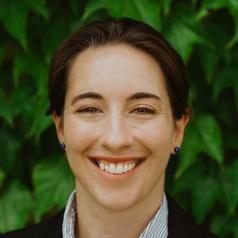
Laura Jones3
Doctoral Student in International Relations, The Fletcher School, Tufts University
Laura Jones is an Air Force special operations pilot currently serving as a PhD student at the Fletcher School of Law and Diplomacy at Tufts University. Prior to beginning the PhD program, Laura served as a CV-22B Osprey instructor pilot and a first assignment instructor pilot in the T-6A Texan II. She has led a RAND Corporation research team, provided translation support to the Office of Defense Cooperation at the U.S Embassy in Paris, France, and deployed to East Africa as a liaison officer to the French Air Force. In addition to military duties, she is a member of the Irregular Warfare Initiative and sits on the board of directors where she oversees production of the Irregular Warfare Podcast. Laura is a graduate of the U.S. Air Force Academy (2011) where she received a B.S. in Regional Area Studies and a French minor and holds an M.A. in Military History from American Military University. She is a non-resident Fellow at the Joint Special Operations University, a National Defense University, Center for the Study of Weapons of Mass Destruction Fellow, and a 2021 Pat Tillman Foundation Scholar.
Less ![]()
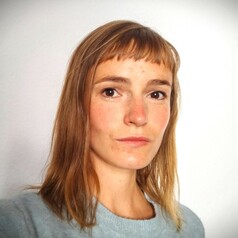
Laura Lambert
Senior Researcher, University of Freiburg
Laura Lambert, Dr. des. phil., is interim head of the research cluster “Patterns of (Forced) Migration” at Arnold Bergstraesser Institute in Freiburg, Germany. Her prior PhD research “everyday externalization” (funded by the Max Planck Society) is an ethnographic exploration of the EU externalization of refugee protection to Niger and its unintended consequences in the everyday life of the cooperating third state. Her wider research interests include refugee recognition and protection, bureaucracies, migration regimes and migrant struggles, future-making and infrastructures. She is the co-founder of the West Africa working group at migration-control.info.
Less ![]()
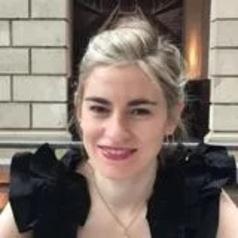
Laura Lander
Lecturer in Engineering, King's College London
Dr Laura Lander is a Lecturer at King's Department of Engineering.
Laura's research focus aims to tackle the challenges of current energy storage systems and, ultimately, to develop high-performance sustainable battery devices. She applies a multi-scale research approach working at the interface between materials science and engineering including life cycle assessment and techno-economics across the battery value chain.
Laura has a transdisciplinary background in energy storage technologies covering the design and characterisation of energy storage materials as well as the evaluation of environmental and economic implications of batteries in a real-world application context. She obtained her PhD from College de France in Paris and later joined the University of Tokyo, where she was awarded a JSPS postdoctoral research fellowship. She then moved to Imperial College London as a Faraday Institution postdoctoral researcher in the Electrochemical Science and Engineering group (Mechanical Engineering Department) before joining King’s College London.
Less ![]()
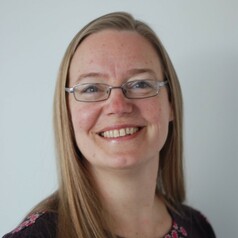
Laura Lindsey
I am a chartered psychologist with more than 10 years experience in public health research. I am a Senior Fellow of the Higher Education Academy and an associate fellow of the British Psychological Society.
My research expertise is around patient experience and access to care. My particular interest is around antipsychotic withdrawal and people being offered the support they need. As a qualitative researcher, I am interested in the use of qualitative methods and the role they can play to explore ways of improving the patient experience and outcomes and patient involvement in the care process.
Less ![]()

Laura Link
Assistant Professor of Teaching and Leadership, University of North Dakota
Dr. Link is the co-author of Cornerstones of Strong Schools: Practices for Purposeful Leadership and author of several articles, book chapters, and professional papers on school leaders, grading, and classroom assessments. She currently serves as an assistant professor and Graduate Director of the Master of Science in Teaching & Leadership program at the University of North Dakota and has won many awards for her community engagement.
Dr. Link served as Associate Dean of the College of Public Service at the University of Houston-Downtown and in various K-12 central office and school-based leadership roles such as Chief Academic Officer, Chief Talent Management Officer, Assistant Superintendent, Professional Development Director, and more. She has taught elementary, middle, high school and college students in her 32 years in the education profession. While Dr. Link was Assistant Superintendent of Teaching & Learning in Memphis, TN, she was 1 of 7 administrators charged with leading the largest school district merger in United States’ history.
Less ![]()
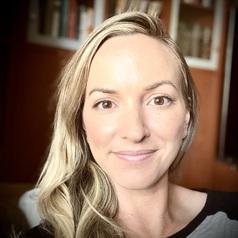
Laura MacDiarmid
Assistant Professor, Justice Studies, University of Guelph-Humber
My research explores the experiences of criminal justice-involved individuals with a particular focus on community justice alternatives, such as restorative justice and bail. I draw from sociological and criminological theories that account for interactional dynamics, emotion, and punishment.
Less ![]()

Laura Makey
PhD Candidate, Sheffield Hallam University
My specialist interests are in infectious diseases and sexual health. I have been involved with a number of research trials for testing new HIV drugs and treatments for sexually transmitted diseases. I also have a keen interest in clinical research design and methods to improve recruitment to research trials. I am currently studying for a PhD on Loneliness amongst women with a HIV diagnosis.
Less ![]()
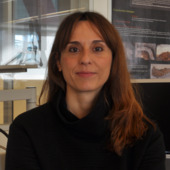

Laura McLauchlan
Postdoctoral Fellow in Anthropology, Macquarie University
Laura McLauchlan is a Postdoctoral Fellow in Anthropology at the School of Social Sciences at Macquarie University. Laura’s work examines practices and worldviews that variously support and block generative connection both within human and other-than-human relationships.
Less ![]()
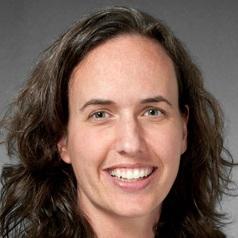
Laura Middleton
Assistant Professor, Department of Kinesiology, University of Waterloo
Cognition abilities are critical to educational and occupational achievement, daily function, and even movement. Unfortunately, cognitive performance declines on average in late life and the prevalence of dementia nearly doubles every five years after the age of 65 years. My research identifies has two focuses: 1) to optimize cognition across the life course and to prevent dementia in late life; 2) to promote strategies to 'live well' with dementia. In particular, I investigate the role of physical activity in the prevention of dementia and improvement of well-being among people living with dementia.
Less ![]()

Laura Minor
Lecturer in Television Studies, University of Salford
My research draws on/explores feminist television studies, female authorship, women’s labour in the media industries, comedy, representations of class, and British screen cultures.
I am currently writing a book on women in comedy, entitled "Reclaiming Female Authorship in UK Television Comedy" for Edinburgh University Press.
I have recently released an article for the European Journal of Cultural Studies on the figure of the 'hun' in British culture: https://journals.sagepub.com/doi/full/10.1177/13675494221134344.
Less ![]()

Laura Muncey
Senior Lecturer in Economics, Anglia Ruskin University
Laura's background is in Investment Banking before moving in to the Higher Education sector. Her primary interests are based around financial economics and Women in HE. She is also leading on the departments Outreach.
Less ![]()

Laura Neil
PhD Candidate, Centre for Health Services Research, The University of Queensland
Less ![]()
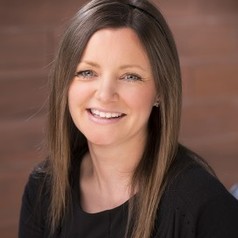
Laura Nicholson
While working towards my PhD in psychology, I worked as a Sessional Lecturer teaching research methods and data analysis at Liverpool John Moores University from 2004 to 2008. I joined the Department of Social and Psychological Sciences at Edge Hill University as a Research Assistant in 2009, in which I worked on several educational psychology projects for 18 months. I then became an Associate Tutor in the same department, in which I teach research methods and analysis, educational psychology and real world psychology. I joined the Faculty of Education research team in October 2013, and work on a variety of projects, primarily in the area of educational psychology.
Less ![]()
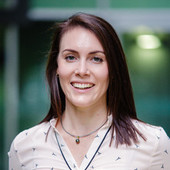
Laura Pernoud
Associate Professor in Physiology, School of Health, University of the Sunshine Coast
Less ![]()
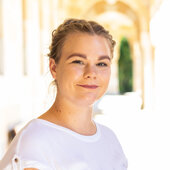
Laura Pernoud1
PhD Candidate in Women's Health, School of Health, University of the Sunshine Coast
Less ![]()
- Market Data























